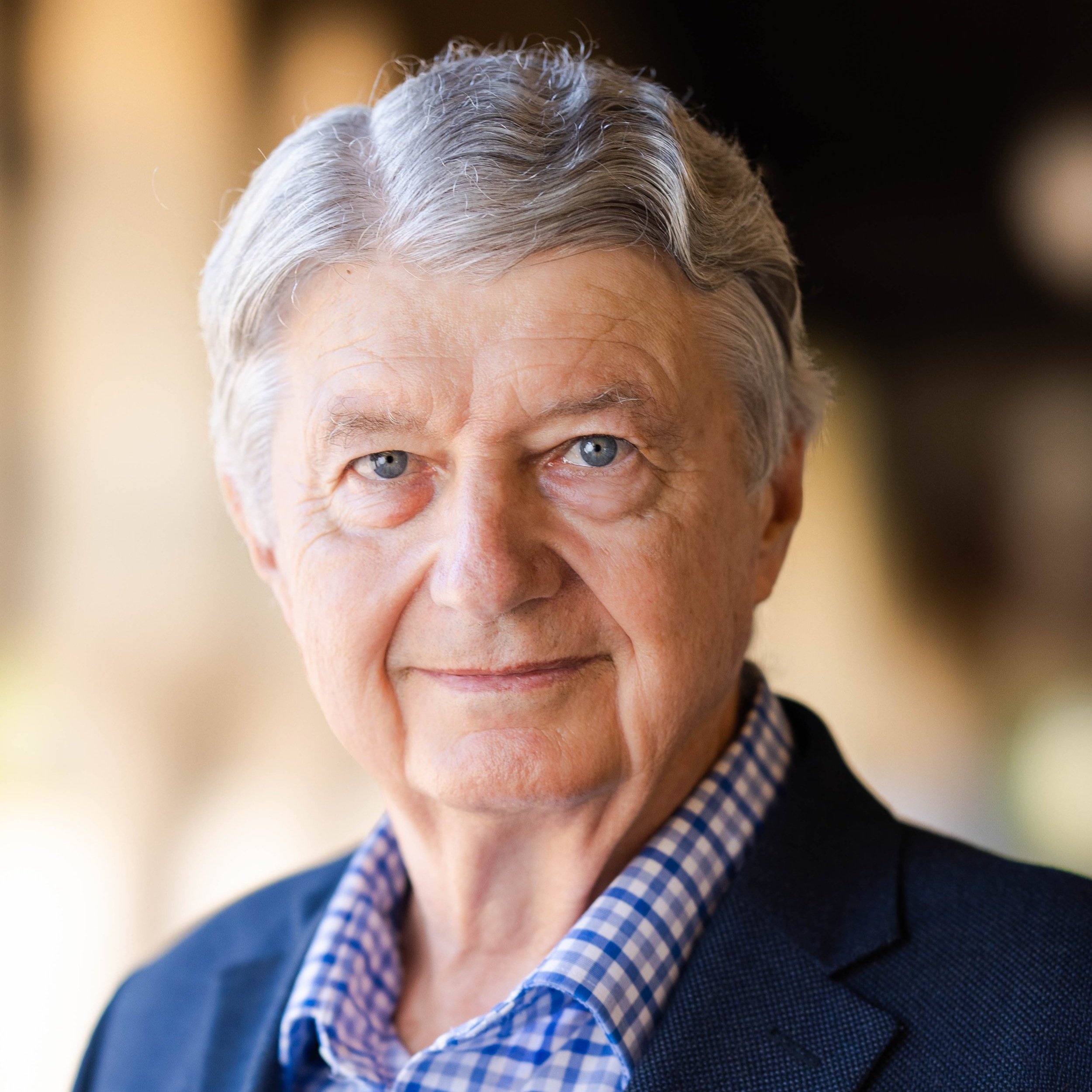
S1E45 - Bruce Cain - Back to Compromise
At the time of our recording, Trump had just received his third indictment for his role in the January 6th insurrection. To give us some greater perspective on the state of politics in our fragile democracy, we turned to Stanford political science professor Bruce Cain who is one of our nation's great political analysts. Cain reflected on Trump’s many self-made challenges, the options before the Republican and Democratic parties, the relevance of polling, the vulnerabilities of our democratic system, and ideas to help us get our system of governance back on track. On top of all that impedes our politics, reacting to changes in the climate heightens our need for timely action. We are in a perfect storm. And yet, there is hope. Cain’s latest book reflects on how we will likely find ways to decarbonize in the long run, even if we don’t move fast enough to avoid the inevitable disruption that climate change will bring in the short run. Cain argues that deniers change their tune when they experience extreme weather effects first hand. He adds that, “...ultimately it is a cultural thing.” Our education, our religions and our journalism will be where we find ways to combat the forces that manipulate us. We’ll have to find our way back to political compromise, for that is how James Madison envisioned our system must function. Join us.

S1E31 - Michael Ellis - The Miracle of It All
Join us for a globetrotting “memory lane” walk-a-bout through naturalist Michael Ellis’s countless national and international adventures. These recounted travels feature spectacular natural highlights, present challenging ethical quandaries, and inspire deep metaphorical reflection on our lives in general. Ellis’ favorite international destinations are the Serengeti - birthplace of humanity, the gorillas of Rwanda, Bhutan, Namibia, the South Georgia Islands, the sharks of Palau, the jaguars of the Pantanal and the ecosystem diversity of Brazil’s Mato Grosso. Closer to home, The Cedars in Sonoma County, mountain biking through Canyonlands or Santa Rosa, the whales off the California coast, chipmunk biodiversity in the Sierras, the simultaneous macro and micro expansiveness of the Mojave desert, and the sanctum of the redwoods. Contained within are the largest, oldest and most exotic lifeforms imaginable. How do we ethically appreciate these miracles? Ellis points out that we can love these places to death, smothering them with too much tourism or generating excess carbon in our travel. At the same time, tourism provides the strongest economic incentive for local peoples to protect their natural treasures, without which habitat becomes farmland and bushmeat becomes dinner. There are no easy answers. The majesty of the natural world invites us to release our expectations, be here now, and pause to be amazed by the miracle of it all.

S1E29 - Molly Kawahata - Deploying Hope
We met with former White House Climate Advisor to President Obama, Molly Kawahata, to hear her innovative perspectives on how to make a real difference in society and for the planet. She is principally focused on how we mobilize productive human psychology to motivate broad systemic change. Her insights are fascinating, born of her own personal struggles, that society writ large has been brainwashed into paralysis with propaganda from the fossil fuel industry that is designed to rob us of hope. It seems an impossible premise, but she effectively argues her case of how this happened, and what those concerned about the future of the planet can do differently to make concrete progress toward the “zero carbon promised land.” While applauding those who make personal choices and sacrifices to help the environment in their own lives, Kawahata eschews climate shaming of all kinds, and sees no averting climate catastrophe without public policy that decarbonizes our industrial, transportation and energy sectors. It is not our fault that we use these sectors. They are the only ones that those without privilege have available to access. Most importantly, she implores us to change the debate away from “saving the polar bears” that those with “boots on their neck” can’t afford to care about, to a practical discussion about pollution and equitable access to clean air and water. We can all see the impact from reducing pollution, and we can have hope in our personal ability to make a meaningful impact. What can you do? Deploy hope and get out the vote. Join us for an exhilarating discussion.

S1E11 - Susan Jackson - Conserving Fisheries and Shared Resources
Our conversation with Susan Jackson - president of the International Seafood Sustainability Foundation (ISSF) - was a fascinating dive into a world that few of us know much about - tuna fishing and conservation. While seemingly esoteric, this episode describes the many facets of a system that strives to conserve shared resources - a particularly challenging task when dealing with sovereign nations and independent companies where there is temptation to cheat. ISSF has built a multi-decades-long reputation for bringing competing stakeholders to the table and collaborating for the benefit of the collective good. As Jackson said in her TED talk, “Our method is broader than our niche.” Listen to learn more about this advancement in private sector multilateralism, and to get more back story on our seafood and the health of the oceans.

S1E9 - Bill McKibben - Renown Environmentalist - Reclaiming the Climate
Bill McKibben is a life-long environmentalist, activist, journalist, and author who has written extensively on the impact of global warming. In our conversation we review the significance of recent climate legislation, the technological alternatives to fossil fuels, and the ways and means currently at work to reclaim the climate – with special focus given to what the Baby Boomers can do.



